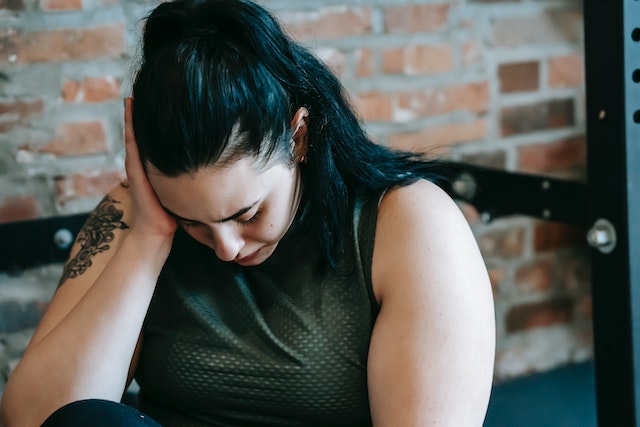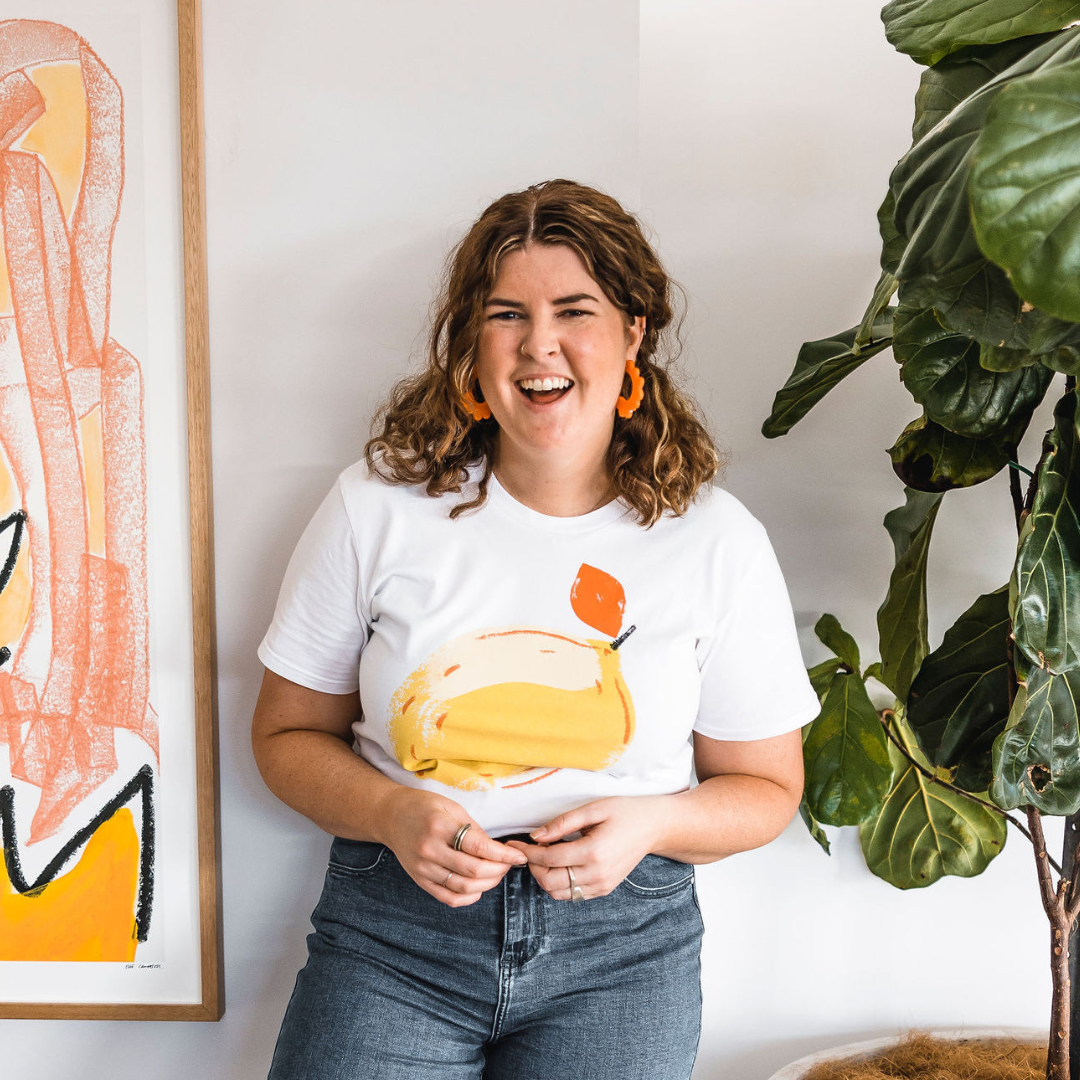Many of my new clients have a similar story. They’ve dieted for decades and tried everything to change their bodies but they know dieting doesn’t work, and still have a strong desire to lose weight. They’re ready, excited and eager to become an intuitive eater, but they have an unrelenting fear of weight gain. Crossing their fingers that maybe they’ll be one of the “lucky” people who lose weight from eating intuitively. This fear is pervasive and likely driven by internalised weight stigma.
In this article, we’ll unpack what internalised weight stigma is, why it’s a problem and how we can dismantle it from our subconscious. Because as long as we internalise the harmful and inaccurate narratives we have about people based on their size and shape, we’ll continue to project these onto ourselves, making it very hard to overcome our fear of weight gain.


What is weight stigma?
If you’ve ever been shamed, discriminated against, or judged purely based on your body size, that’s weight stigma. It is a powerful belief system upheld by diet culture, societal expectations and weight bias that larger bodies are bad while smaller bodies are good.
Internalised weight stigma is similar; however, instead of a doctor, partner or colleague making negative comments about your body size, it’s coming from within. And it doesn’t just affect people with larger bodies; it can affect anyone, regardless of their shape or size. Think about all the horrible things you’ve heard said about fat people. Now imagine that voice inside your head 24/7. That’s internalised weight stigma – an internal voice fat shaming you for everything you eat, drink and wear.
Why internalised weight stigma is a problem?
Although a large part of our society unfortunately still believes fat shaming is helpful, research shows it’s detrimental to our health. People who experience weight stigma, whether externalised or internalised, have an increased risk of depression, anxiety, low self-esteem, poor body image and binge eating and eating disorders.


How did we develop internal weight stigma?
Let’s be honest; the world hates fat people. You only have to spend 10 minutes scrolling social media comments to see the hate and torment people of all shapes and sizes receive based on their weight.
From a young age, we’re exposed to thousands of messages about what makes a “good” or “bad” body, e.g. fat people are lazy, unmotivated or unsuccessful vs. thin people are worthy, lovable, fun and successful. Over time we start to internalise these messages for safety.
Here are just a few places we inherit this weight bias:
Family
Watching our parents (usually mothers) or relatives from a young age practice dieting behaviours to lose weight. This behaviour typically accompanies negative language to describe their weight or appearance. A child hears, “I’m so fat and ugly”, then internalises, “Mum doesn’t like fat and ugly people. I must stay beautiful and thin for Mum to love me”.
School
For many kids, the number one priority at school is to be liked. So if you witnessed or experienced bullying at school for being fat, you might have internalised the message – being fat attracts bullying while being thin equals safety.
Friends
If your friends grew up in a family with extreme weight bias’ expect comments based on your/their/or somebody else’s body and/or food choices. Whether it’s “OMG, I can’t believe they’re eating all that food” or “I’m so fat, I hate my body”. We pick up messages from friends that they prefer smaller bodies and internalise, “I have to be smaller for this friend to like me”.
Health professionals
More than half of all health professionals exhibit some form of weight stigma. People know going to the doctor is safer, more accessible and more effective if they have a lower body weight.
Government
The “war on *besity” is likely one of the most significant contributors to internalised weight stigma. It’s driving the narrative that people in larger bodies are equivalent to Hitler, the Taliban or other war-related organisations. It’s natural for people to internalise the messaging, “If I have a smaller body, I’m safe and not responsible for starting/continuing a war”.
Pop culture
Over the past two to three decades, seeing only thin musicians, actors, dancers, models, and celebrities in the mainstream has dramatically contributed to internalised weight stigma. E.g. “To be rich, famous and successful, I must be thin”. I remember talking to a client about a book she read as a child where the main character lost lots of weight and became wildly popular and successful – what kind of messaging is this sending to kids? And the same is true today. As soon as a celebrity loses weight, they’re celebrated and almost “accepted in” now they’re thin.
The self-compassion paradox
A recent survey by Latrobe University looking at Australia’s attitudes towards and experiences of weight stigma found 75 per cent of people would stand up for someone being fat-shamed. However, this isn’t true when challenging our internal fat-shaming voice. We’re constantly subject to cruel and negative thoughts that we must strive for a smaller body no matter the cost.


How to reduce internalised weight stigma?
Step 1. Become aware of your beliefs and unconscious biases about people in larger vs. smaller bodies. (it can be helpful to write them down)
Step 2. Start to unpack and challenge each belief. Ask yourself where this belief came from and see if it’s true or fuelled by weight bias.
Step 3. Widen your exposure and knowledge of what being in a larger body is *actually* like. Start to follow different people on social media with varying types of bodies.
Step 4. Ask for help. Internalised weight stigma can be incredibly debilitating and challenging to dismantle alone. Discussing your beliefs about larger bodies with a HAES-aligned Dietitian or Psychologist can be very helpful.
Need help dismantling internalised weight stigma?
You’re not alone. We all have some degree of internalised weight stigma. While you can work on unpacking, challenging and reframing our beliefs about weight, shape and body size, it can be helpful to work with a professional.
Get in touch if you’d like support to develop a kinder and more compassionate inner voice free of weight bias.


Erin’s an Accredited Practising Dietitian & Certified Intuitive Eating Counsellor. She uses a non-diet approach and weight-inclusive care to help her clients reclaim a healthy relationship with food and their bodies free of guilt, shame and restriction.












View comments
+ Leave a comment